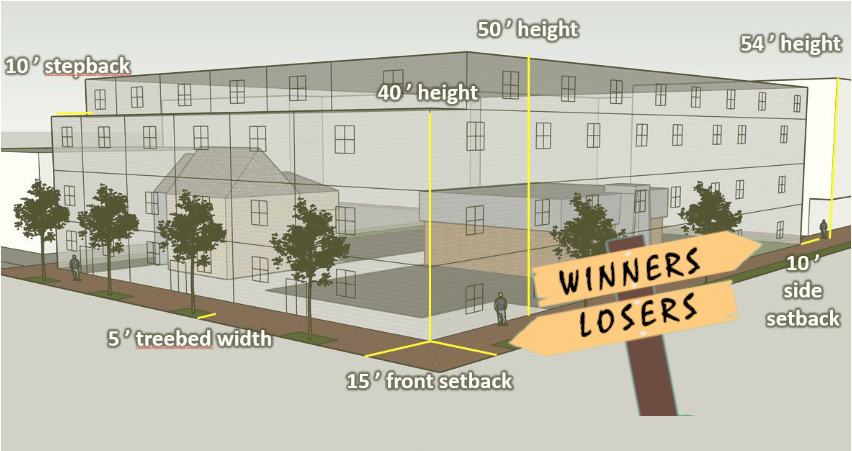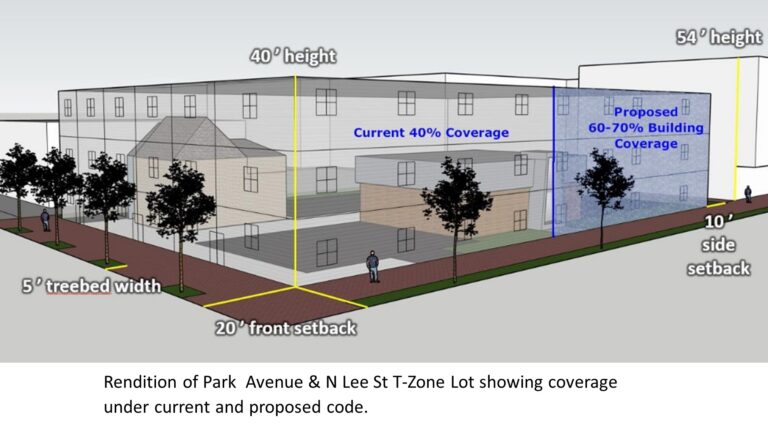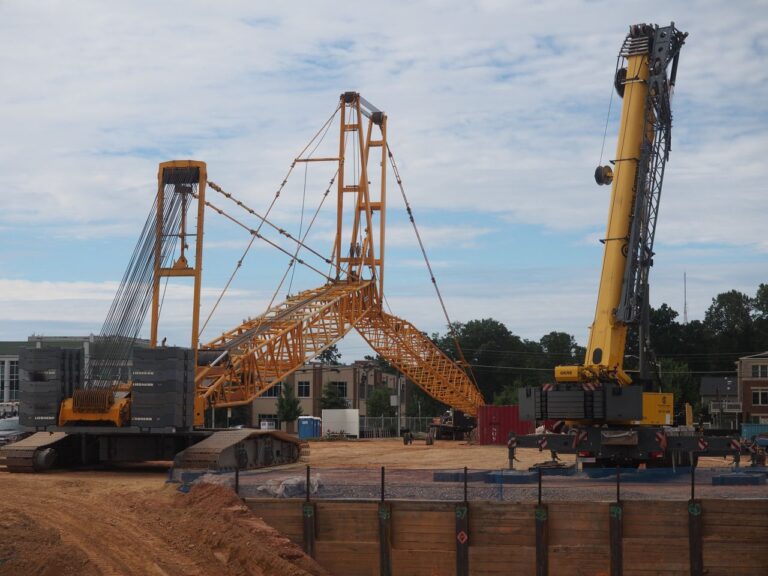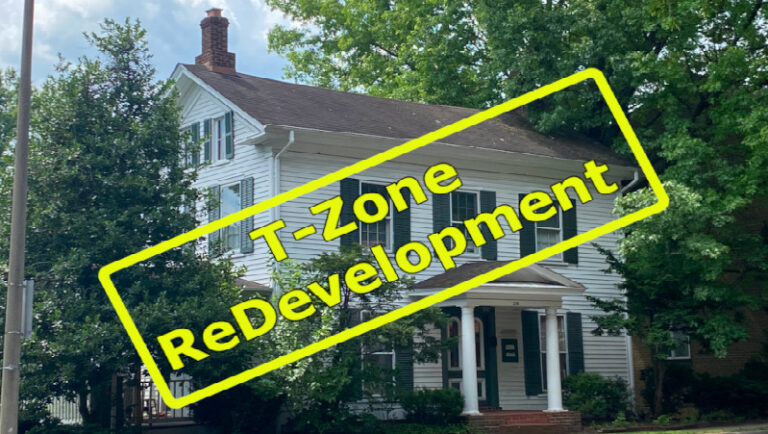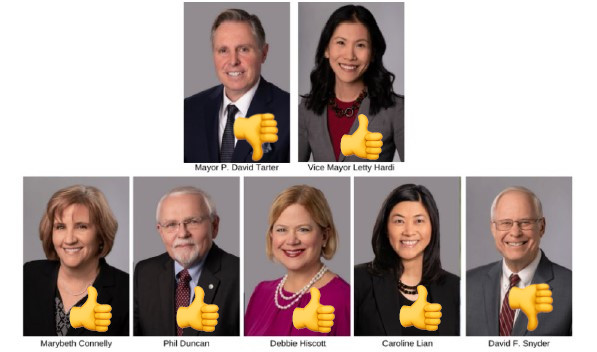Council Ignores Citizens, Surrenders Planning Authority
Author: W. Frederick Thompson
The City Council’s August 7, 2023, 5-2 decision to approve first reading of the latest T-Zone ordinance relinquishes all Council “guardrails” and all regulatory control of development to private real estate interests. (See First Reading: City Council Votes 5-2 To Approve New T-Zone Proposal.) Let’s look at who wins and who loses.
The Losers – Citizens
Citizens who want to provide entry pricing for middle income residents – The plan is engineered to achieve a specific price point—$800,000. The Brookings Institution has defined the “missing middle” as a 3-person household with income between $37,000 and $147,000. It’s hard to imagine anyone in that income range with student debt and car payments and normal day-to-day expenses affording the $800,000 condominium which the Council is targeting.
Citizens who want to create more affordable housing in the community – Six of the seven City Council members have told me personally that they do not expect any affordable housing to be built as a result of the current proposed ordinance. The number of affordable units that this law would add is likely to be zero.
Citizens who have petitioned their government – About 500 citizens signed petitions. Many more filed comments or spoke at public sessions. Nearly all spoke in opposition to this plan. The couple dozen people who spoke in favor of it did so because they supported affordable housing increases or more affordable housing for the “missing middle.” The proposed ordinance will achieve neither of those objectives.
Citizens who believe that the Transition Zone should provide a transition between business and residential areas – This ordinance fails to lower heights and decrease density from commercial areas. In Council discussions after the Park Avenue Walking Tour on July 17, 2023, one Council Member mentioned “the scary box.” This is exactly where the Council should focus its attention. Look at worst case development and define the parameters of what is allowed so that the worst case will not happen.
Citizens who believe in open and transparent government – Only public late in the day on August 3, 2023, the planning staff’s new staff report made major changes. The public was given only one business day before the Council took the next steps to enact these changes into law. This is not good governance. Having a continuing roller coaster of changes and no stability in the proposals is also not good governance.
Citizens who support protections for the environment – The Environmental Sustainability Council (ESC) made excellent suggestions to the Planning Commission. However, as a result of moving nearly all residential development out of the Special Use Permit (SUP) process, most of the ESC’s recommendations cannot be implemented.
Citizens and local businesses that depend on local street parking – Requiring only one parking space per unit will not satisfy basic homeowner needs or needs for guest parking or service vehicle parking. The overflow will empty into surrounding streets.
Local property owners who wish to build quality townhouses befitting our community – The maximum unit sizes and numbers in the ordinance Council has sent to the Planning Commission for review are clearly trying to drive developers away from townhouse development and toward condominium and apartment development. Thirty-four to 60 townhouses per acre is absurd.
The Winners – Developers
Real estate developers — Real estate developers will be able to build large residential and commercial buildings of equal height and higher density than the Broadway Condominium without making contributions to better the City and without having to take responsibility to correct or address any adverse impacts their developments generate.
The Days Ahead
The Economic Development Committee of the City Council is made up of Council members and real estate developers who serve on the Economic Development Authority. They originally launched this effort as a way to make speedy change with minimal public input and participation. The effort started with a legislative first reading of a law in May 2022. This has not proven to be quick or easy.
Nonetheless, with a new first reading, the Council majority is on the path to final enactment. The next step is Planning Commission review and endorsement. This is likely to be quick and is scheduled for the next few weeks in August. There is little point in the Planning Commission making substantive comments that the Council majority has already rejected and that would trigger a new first reading the Council majority clearly opposes. All along the way, affected citizens have tried to be heard and have made proposals to build sustainable compromises to improve the City. They have been channeled back into formal, arms-length comment processes, which constitute little more than scream therapy. This will be the law. It will just not be a good law.
Mr. Thompson’s expanded analysis is available in PDF format here.
References
- The Falls Church Pulse report on the new T-Zone Proposal First Reading: City Council Votes 5-2 To Approve New T-Zone Proposal.
- For an overview of the T-Zone proposal, read our T-Zone Primer.
- Past T-Zone proposals and Current code is in the post Evolution of T-Zone Proposals.
- August 7, 2023 Planning Staff Report, (TO23-11) Ordinance to Amend Chapter 48 “Zoning” to Include an Average Unit Size and Density Restrictions in the T-1 Transition Zone; Eliminate Single Family and Two Family residential Use Therein; Allow for a Townhouse, Apartment and Condo option and Allow for Expanded Lot Coverage https://fallschurch-va.granicus.com/MetaViewer.php?view_id=2&event_id=2036&meta_id=124155
- August 7, 2023 City Council meeting, https://fallschurch-va.granicus.com/player/clip/2388?view_id=2&redirect=true&h=616d25ce62ba798fdfd1ba1390017b89 This official recording will not display properly on mobile devices because it contains an agenda attachment.
- August 7, 2023 City Council meeting, live recording on Youtube https://www.youtube.com/live/1mj5C6iHF8k?feature=share

